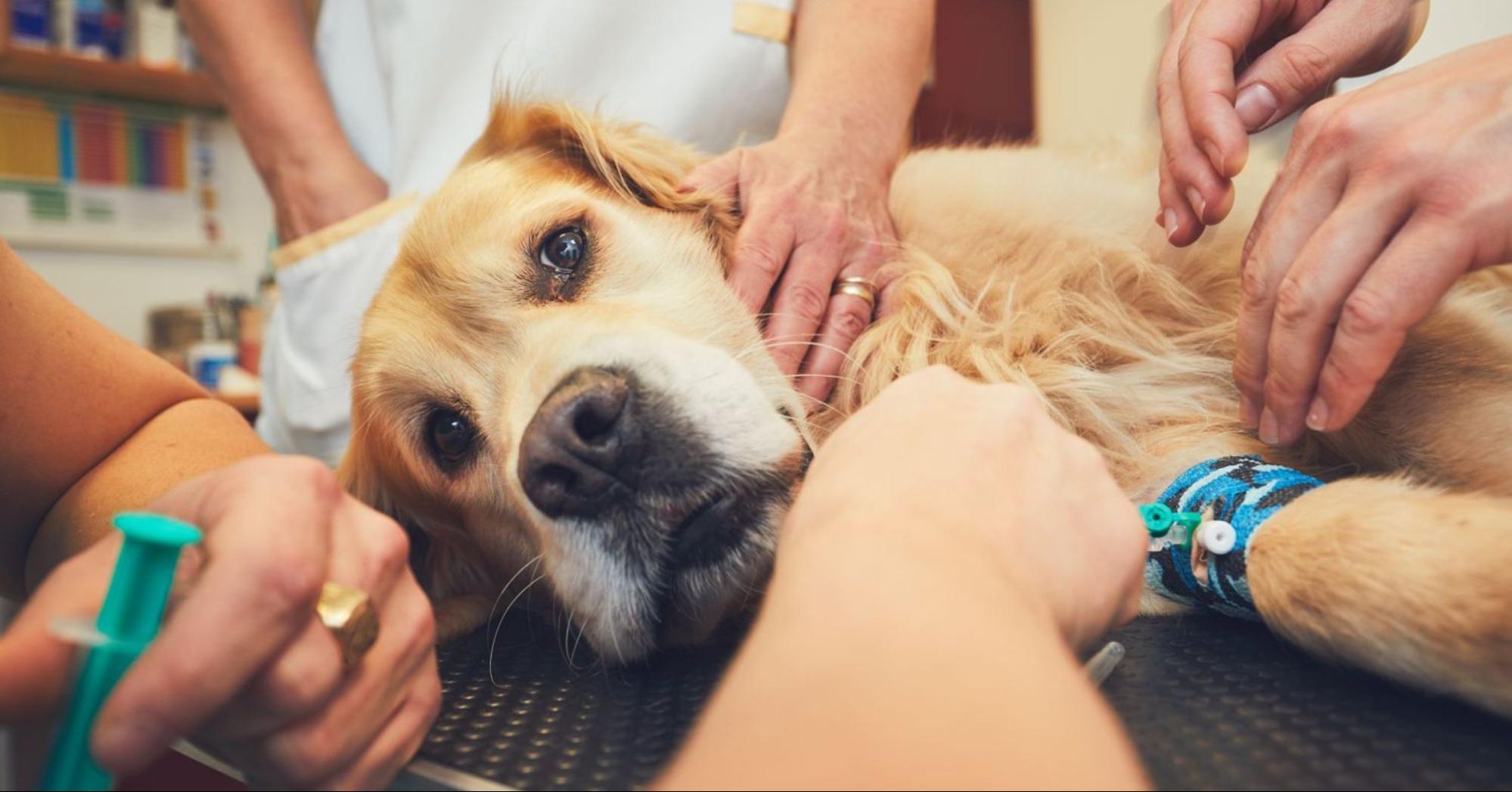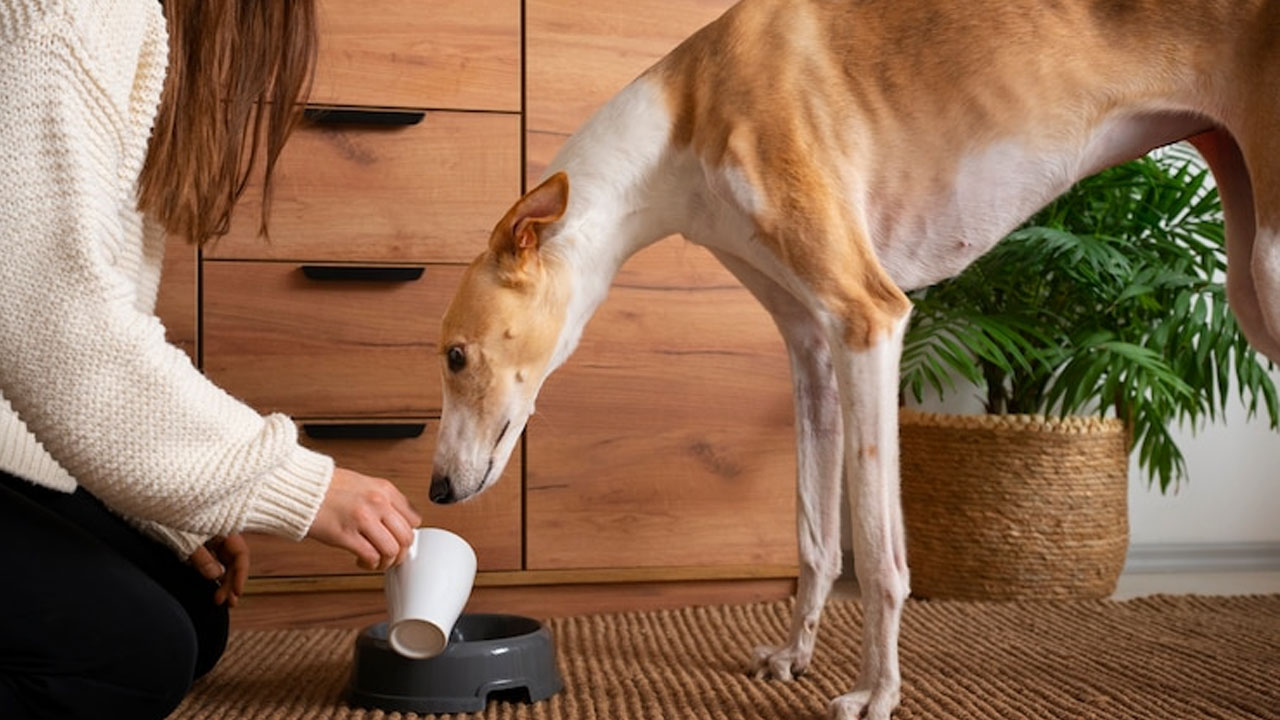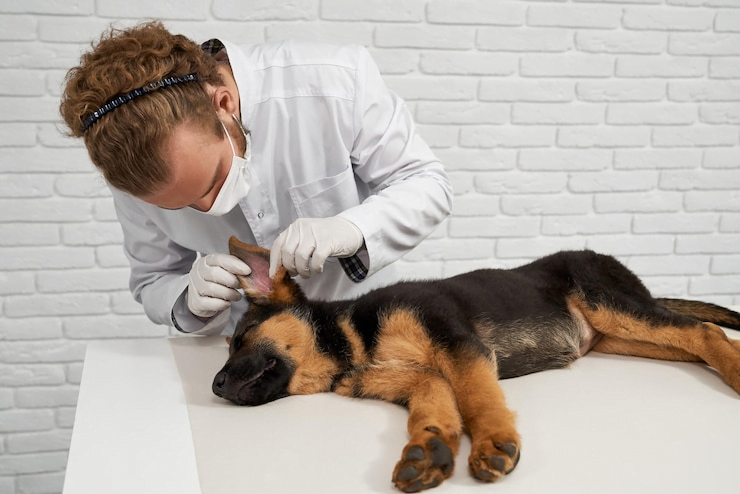Seeing blood in your dog pooping blood can be alarming and may indicate a variety of health issues. From minor gastrointestinal upset to serious diseases, understanding the cause is crucial for effective treatment. Hematochezia, or the presence of fresh blood, often suggests problems in the lower intestinal tract, while melena, which is digested blood, points to upper gastrointestinal issues.

Common causes range from dietary indiscretions and parasites to more severe conditions like infections, inflammatory bowel disease, or even tumors. Prompt veterinary diagnosis and intervention are essential for your pet’s health and well-being. This article will explore the possible reasons for bloody stools in dogs, helping you to understand the symptoms, treatments, and preventive measures.
Why is My Dog Pooping Blood?
It can be alarming if you notice blood in your dog’s stool, but several potential causes exist. Common reasons for a dog pooping blood include dietary indiscretion, infections, parasites, foreign objects, allergies, or more severe conditions like inflammatory bowel disease or cancer. It is crucial to consult your veterinarian for a proper diagnosis and treatment.
To address this issue, your vet may conduct a physical exam, blood tests, faecal analysis, or imaging studies to pinpoint the underlying cause. Treatment will depend on the specific diagnosis but may involve medication, dietary changes, surgery, or other interventions. In some cases, prompt medical attention can prevent a minor issue from escalating into a serious health concern. Monitor your dog’s condition closely and seek professional help if you notice any worrying symptoms.
What Normal Dog Stool Looks Like
Before discussing the abnormal, it’s essential to understand what normal dog stool looks like. A healthy dog’s poop should be firm, moist, and easy to pick up. It should be chocolate brown. Variations can occur depending on diet and hydration levels, but the consistency and colour should remain relatively stable.
A slight change in texture or colour isn’t usually a cause for concern. However, significant changes, especially the presence of blood, should prompt a closer look. Understanding your dog’s normal stool will help you recognize when something is off and potentially severe.
Common Causes of Blood in Dog’s Stool
There are several reasons why your dog might have blood in their stool. Here are some common causes:
Dietary Changes
Sudden changes in your dog’s diet can lead to gastrointestinal upset, which might result in blood appearing in the stool. Introducing new foods gradually and monitoring your dog’s reaction can help avoid this issue.
Parasites
Parasites like hookworms, whipworms, and giardia can cause blood in your dog’s stool. These parasites irritate the intestinal lining, leading to bleeding. Regular deworming and faecal examinations by your vet can help keep parasites at bay.
Infections
Bacterial and viral infections can also cause bloody stool. Infections like parvovirus or bacterial overgrowth can lead to severe gastrointestinal issues. Vaccinations and maintaining a clean environment are crucial preventive measures.
Stress
Dogs can experience stress for various reasons, including changes in environment, routine, or exposure to loud noises. Stress can lead to colitis, which is colon inflammation and can cause blood in the stool. Identifying stressors and providing a calm environment can mitigate this.
When to Seek Veterinary Attention
It’s important to know when a situation requires immediate veterinary attention. Here are a few signs indicating that blood in your dog’s stool is an emergency:
Vomiting
If your dog is vomiting and has blood in their stool, it could indicate a severe gastrointestinal issue. This combination of symptoms can quickly lead to dehydration and requires prompt veterinary intervention.
Severe Diarrhea
While occasional diarrhoea isn’t uncommon, severe or persistent diarrhoea accompanied by blood is a red flag. It can lead to rapid fluid loss and should be addressed by a professional.
Lethargy
Lethargy, extreme tiredness, and bloody stool can signal a deeper issue. If your dog seems unusually tired or unresponsive, don’t wait to see if it passes—contact your vet immediately.
Home Care Tips
While some situations demand immediate veterinary care, there are instances where home care can be beneficial. Here are a few tips:
Diet Adjustments
If dietary changes are the suspected cause, revert to a bland diet like boiled chicken and rice until your dog’s system stabilizes. Gradually reintroduce their regular food once symptoms improve.
Stress Reduction
Identify and minimize stressors in your dog’s environment. Provide a quiet, comfortable space and maintain a consistent routine to help reduce stress-related colitis.
Hydration
Ensure your dog stays hydrated, especially if it has diarrhoea. Offer plenty of fresh water and consider electrolyte solutions if your vet recommends them.
Conclusion
Monitoring your dog’s health and being proactive when you notice changes is critical to ensuring their well-being. While blood in your dog’s stool can be concerning, understanding the potential causes and taking appropriate actions can help you address the issue effectively. Always consult your veterinarian if you’re unsure about your dog’s symptoms or if they worsen.
FAQ
Can Stress Cause Blood in My Dog’s Stool?
Yes, stress can lead to colitis, which may result in bloody stool. Identifying and reducing stressors in your dog’s life can help alleviate this.
What Should I Feed My Dog if They Have Blood in Their Stool?
Start with a bland diet like boiled chicken and rice. Gradually reintroduce their regular food once symptoms improve.
Is Blood in A Dog’s Stool Always a Sign of a Serious Issue?
Not constantly, but monitoring your dog for other symptoms like vomiting, severe diarrhoea, or lethargy is essential. Consult your vet if you’re concerned.
Can Parasites Cause Blood in My Dog’s Stool?
Parasites like hookworms, whipworms, and giardia can cause bloody stool. Regular deworming and faecal exams can help prevent this.
When Should I Take My Dog To The Vet For BloodI in Their Stool?
Seek veterinary attention if your dog is vomiting, has severe diarrhoea, is lethargic, or has blood in its stool.













